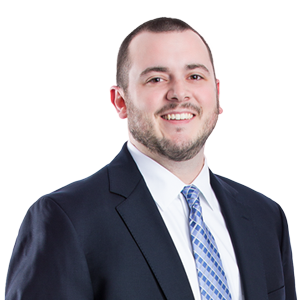CHARLESTON, SC—Developers, municipalities and investors can use a variety of federal and state programs to create profitable real estate investment opportunities in locations they may not initially consider for development.
For example, federal and state brownfields programs provide substantial funding for cleaning up and redeveloping polluted and contaminated tracts of land. And now, the new federal Opportunity Zones program provides significant capital gains tax incentives to investors that put money into designated low-income areas. The Opportunity Zones program creates jobs and wealth in these communities, while providing investors with attractive tax savings.
Womble Bond Dickinson attorneys regularly guide real estate developers, investors and municipalities in both brownfield projects and Opportunity Zone investments. And on Feb. 25, Womble Bond Dickinson partners Michael Bogle, Mike Cashin and Stephanie Few will take part in a Charleston Metro Chamber of Commerce presentation on “Business in your Backyard - Brownfield Redevelopment & Opportunity Zones”.
Joining Bogle, Cashin and Few will be DHEC State Brownfields Manager Robert Hodges, Terracon Brownfield Grant Coordinator Becky Horace, Town of Central Town Administrator Phillip Mishoe and Terracon National Brownfield Program Director Belinda Richard.
Attendees will learn about the federal and state brownfield programs, their grant funding, tax incentives and the application of the new Opportunity Zone regulations to brownfield properties.
The panel also will discuss how the brownfield grant funding has been used by an Upstate town to ignite its revitalization.
Click here for more information or to buy tickets.
Click here for more Womble Bond Dickinson insights on Opportunity Zones.
Michael Bogle guides companies complex US environmental litigation matters, including CERCLA/cost recovery actions, toxic tort actions and cases involving impacted property. He also helps clients comply with state and federal environmental regulations. Bogle also guides companies in buying, selling and remediating contaminated properties, negotiating access agreements, and reviewing environmental aspects of real estate transactions, including voluntary cleanup contracts under the South Carolina Brownfields Program.
Mike Cashin has advised public and privately held entities on complex tax planning and structuring matters for more than a decade. His legal practice includes counseling clients on federal opportunity zone regulations, structuring considerations, and tax benefits associated with opportunity zone investments.
Stephanie Few has played a role in many of South Carolina’s largest economic development deals of the past 20 years. She works closely with companies seeking to expand or relocate operations to the Carolinas and the Southeastern United States. Her efforts on behalf of clients have led to the creation of thousands of new jobs and billions of dollars in new investments. When the New York Times profiled Charleston’s economic boom in 2017, Few was one of the local leaders the Times turned to for insight.




